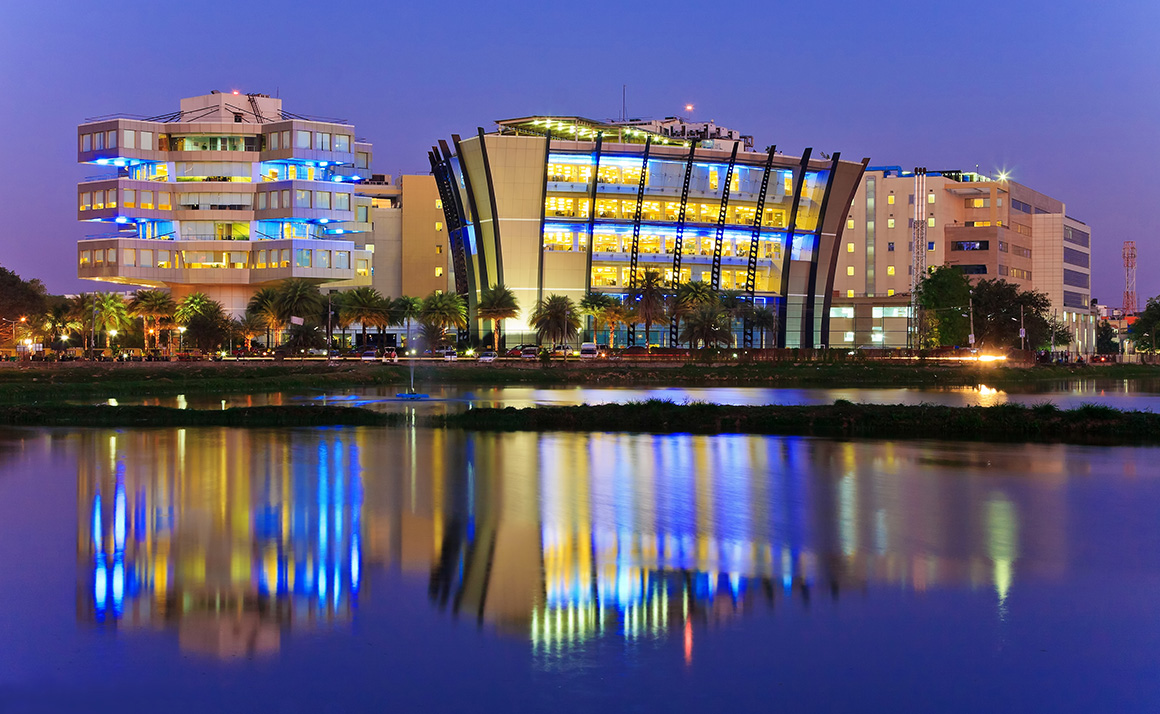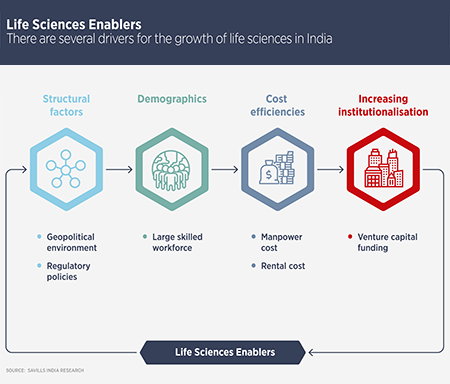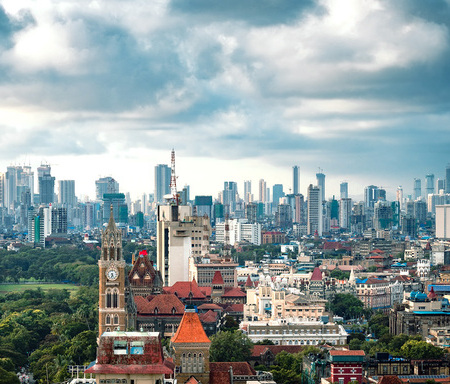
India’s growing tech towns
The outsourcing boom continues in India and new working practices mean that a wider range of cities across the nation are able to take part and attract investment over the next decade.
The information technology – business process management (IT-BPM) outsourcing business has been a great success for India, thanks to its large talent pool of technical graduates fluent in English.
Bengaluru is the prime centre for the industry, alongside cities such as Chennai, Delhi, Hyderabad, Kolkata, Mumbai and Pune. However, with rapid urbanisation and expansion of the IT-BPM industry, tier II and III cities with a million-plus population and a strong talent pool are emerging as “tech towns”.
Arvind Nandan, head of research and consultancy at Savills India, says: “Improved digital infrastructure across the country and the concepts of working from home and working from anywhere have catapulted these tier II and III cities into the thick of IT- BPM action.”
The IT-BPM industry had revenues of $190bn in 2020 and this could rise to as much as $350bn by 2025. With the IT-BPM sector set to hire more than five million employees across the country in the next five years, Savills India Research estimates it could occupy a further 80m to 120m sq ft of Grade A office space, including coworking spaces in that period.
Savills has identified 33 ‘tech towns’ across India, which will benefit from the growth of the IT-BPM business. These are divided into existing ‘leaders’, ‘challengers’ which have been emerging over the past 5 to 10 years and ‘emerging’ cities. The cities are rated on factors including the presence of an educated and skilled workforce, infrastructure and the stock of Grade A office space.
Leader: Bengaluru
Bengaluru has been a tech town since a 1980s policy which liberalised the import and export of hardware and software services. Domestic and international firms set up campuses for their operations.
The city has slowly shifted from being a back office location to becoming a hotspot for research and development. In 2020, nearly 40% of the country’s IT exports came from Bengaluru. The city is now also a globally-significant start-up location.
An educated labour force is the key to its success; Bengaluru has 150 universities. It also boasts an established ecosystem of IT-BPM companies and supporting infrastructure which nurtures newer organisations in the sector. In Q1/2022, the city has a stock of 195m sq ft of Grade A office space.
Challenger: Coimbatore
Coimbatore, a city in Tamil Nadu with a population of 2.8m, benefits from its proximity to the leader cities of Bengaluru and Chennai.
It also has strong human resources, with twice the technical workforce availability compared with the national average.
For occupiers, Coimbatore offers similar advantages to Bengaluru and Chennai, however rents and labour costs are only half those of the leading cities.
Emerging: Bhubaneshwar
Most of India’s developing tech towns are in the south and west, however Bhubaneshwar is one of four cities from the eastern part of India to feature on the list of “challenger and emerging” cities.
It is the capital of the state of Odisha, with a population of 1.2m and a long history, even though the modern city was only established in 1948.
Bhubaneshwar has a strong education sector, with 35 technical colleges and is ranked as India’s second most liveable small city.
It is becoming established as an Eastern alternative to the leader city of Kolkata; rents are 30% to 35% lower than in Kolkata, according to Savills research.
Further reading:
Tech towns of the future report
Contact us:
Arvind Nandan



